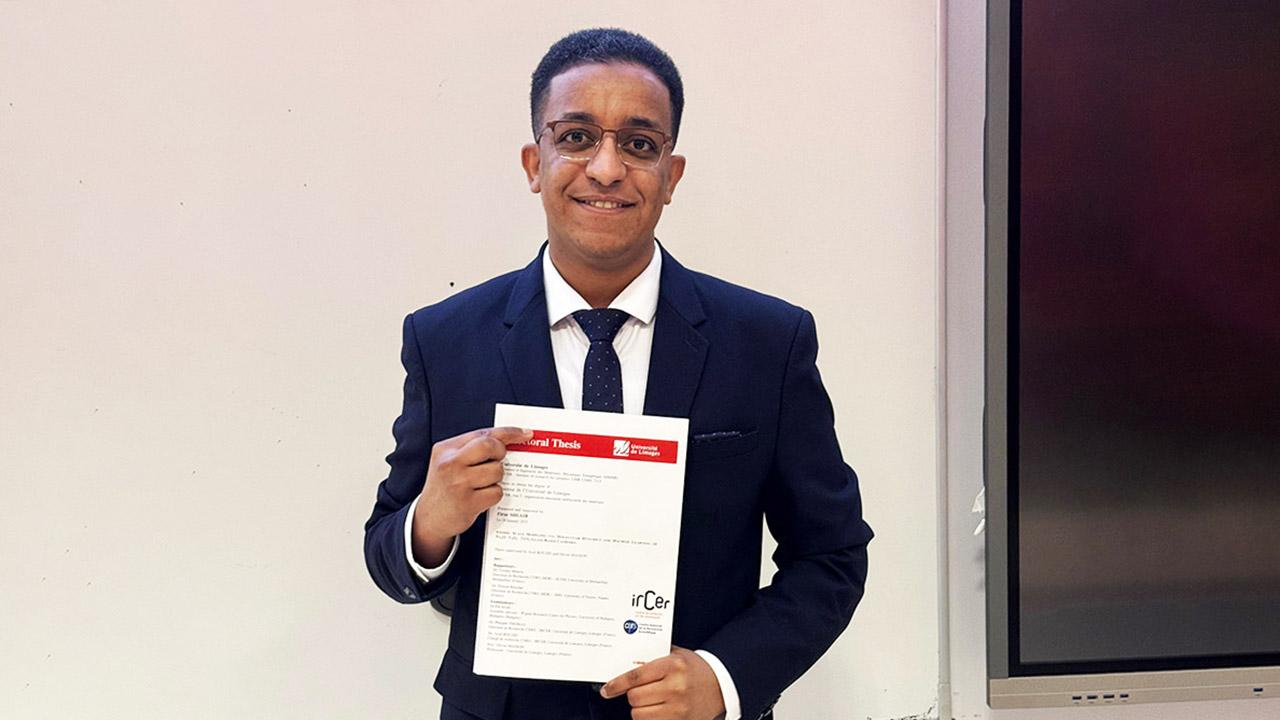
Growing up in Sudan, when he was in high school Firas Shuaib wanted to study pharmacy at the country’s best university, the University of Khartoum. But his marks would not grant him access to that program, so he pivoted to a degree in natural sciences.
While he had always been interested in understanding how the world around him works, Shuaib’s passion for physics only blossomed during those undergraduate years. “One defining moment was when I attended the first course on quantum mechanics,” he explains, “but I also enjoyed more applied courses, such as electronics and materials science, and it was there that I became passionate about semiconductors and their applications,” he continues. These classes ignited Shuaib’s passion for condensed matter physics and materials science. For his final undergraduate project, he decided to work on quantum entanglement, “It really fascinated me to discover that quantum particles continue to interact with each other even when they are very far away from one another,” he explains.
Shuaib’s growing interest in physics also went hand in hand with a desire to continue learning at a more advanced level. During his final year at university he applied to the ICTP Postgraduate Diploma Programme but was not accepted. He continued his studies in Khartoum, graduating with honours and starting a position as a teaching assistant there, all the while dreaming to advance his studies through a program abroad. That dream became a reality when he was one of 10 students accepted into a new, two-year master’s degree program at the East Africa Institute for Fundamental Research (EAIFR), ICTP’s partner institute in Kigali, Rwanda.
“The time I spent at ICTP-EAIFR was a real turning point for me. There, I was exposed to computational physics, which allows one to see how a system works at the microscopic scale. By looking at the way atoms and molecules interact, you can predict the properties of materials at the macroscopic scale. You can do and see things that even experimentalists cannot,” Shuaib explains.
When the time came for him to start his master’s project, Shuaib decided to push his computational skills even further, by taking on Machine Learning. “I used Machine Learning to predict the critical temperature of superconducting metals,” he explains, “It was an exciting challenge because it combined my love for physics, coding and data analysis.”
Shuaib was determined to continue in the field of computational condensed matter physics and his experience in Kigali helped him secure a PhD position at the University of Limoges, in France, with the French National Centre for Scientific Research. “It took me some time to be accepted in an ICTP programme, but this opportunity was really life-changing for me. It gave me foundational knowledge and opened up many opportunities for me,” he explains, “Thanks to my master’s degree I received four PhD offers.”
Shuaib’s PhD project contributed to the global effort toward more sustainable energy storage technologies, which are becoming increasingly important as the electricity industry shifts toward renewable energy sources. “While lithium-ion batteries have long dominated the market--especially for electric vehicles--their capacity is approaching its limit, and their dependence on lithium raises significant sustainability concerns,” he explains, adding “This has sparked growing interest in alternative battery technologies that offer higher capacity, lower cost, and improved environmental performance. Among these, sodium-ion batteries have emerged as a particularly promising solution.”
Motivated by the need to improve materials for sodium-ion batteries, Shuaib focused his research on developing and understanding glassy materials that could serve as efficient cathodes for the batteries. He did this by using advanced computational techniques, including first-principles molecular dynamics and Machine Learning methods.
Shuaib successfully defended his PhD in January 2025—the first graduate of the ICTP-EAIFR master’s programme launched in 2018 to do so. He is now working as a postdoctoral researcher at the Institute of Research for Ceramics at the University of Limoges , applying the computational skills he gained during his PhD to a different set of materials, the so-called high-entropy materials, which are being explored for various applications to environmental science and renewable energy technology.
“I want to contribute to research on the next generation of materials for applications in energy storage and superconductivity and to participate in mentoring and training young scientists, especially in Sudan, where I grew up, and in Egypt, where I also have my nationality,” says Shuaib when asked what his dream is. “I would like to encourage young people in my country who are passionate about science, to not give up and continue studying even though it is hard and the priority is to get a job that allows one to feed one’s family. You need a lot of patience and of hard work, but doing science at a very high level is possible.”
An ICTP partner institute and a Category 2 UNESCO Institute, ICTP-EAIFR was launched in 2018 and is hosted by the University of Kigali, in Rwanda. In addition to carrying out advanced research, the institute contributes to training new generations of scientists through its master’s and PhD programmes.
















